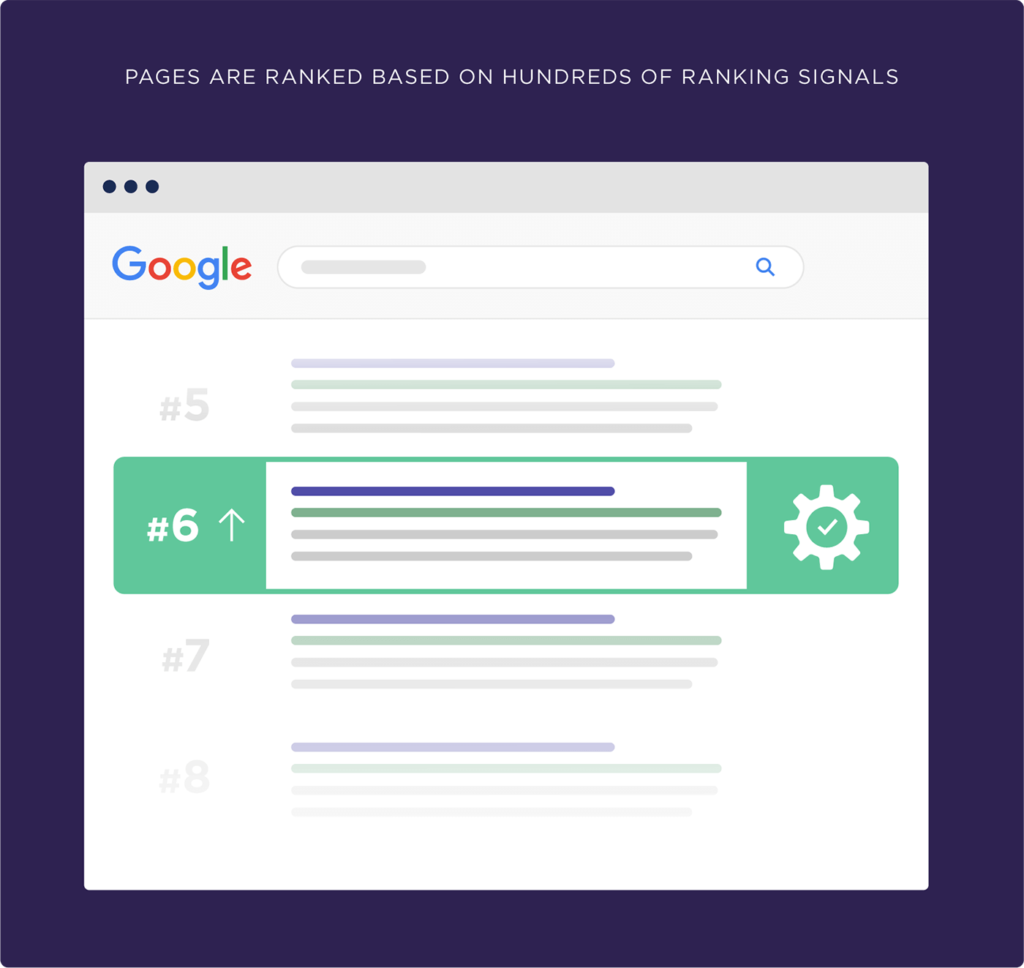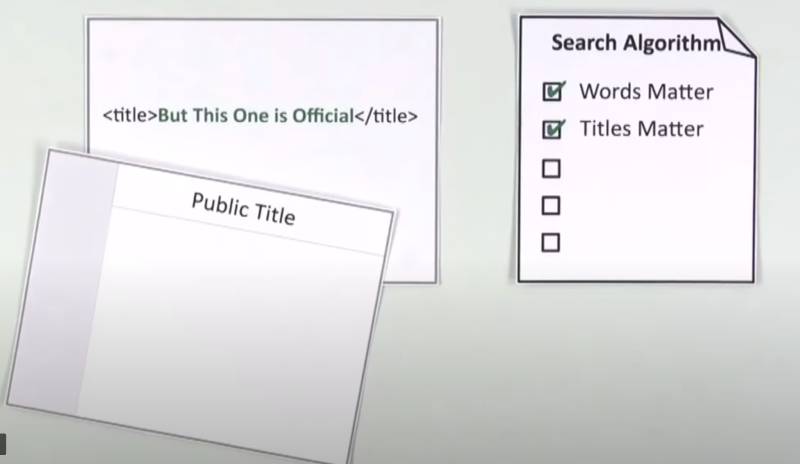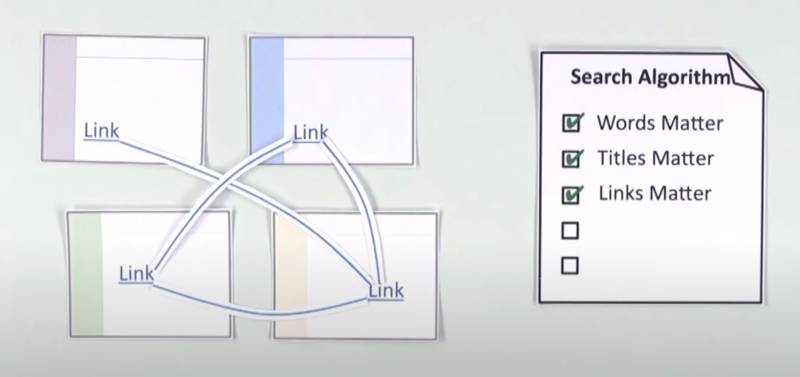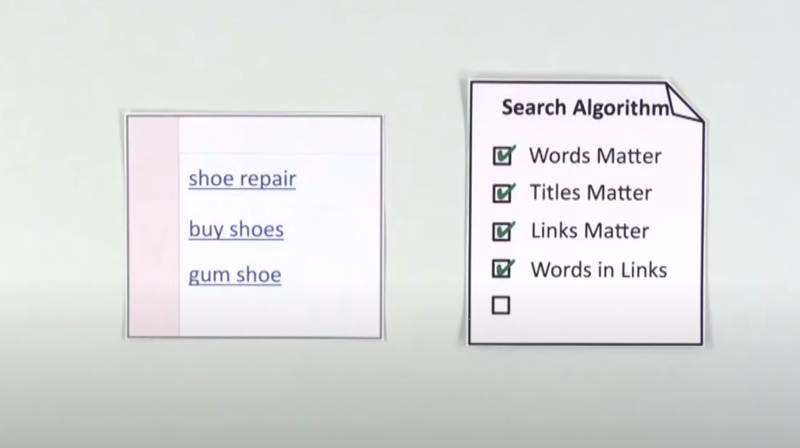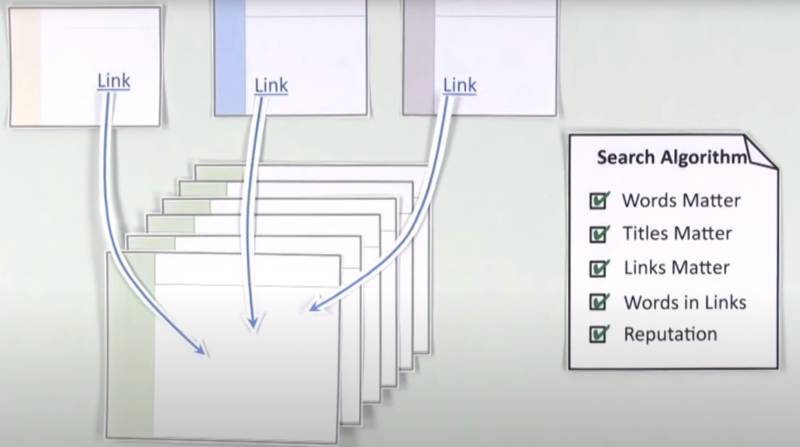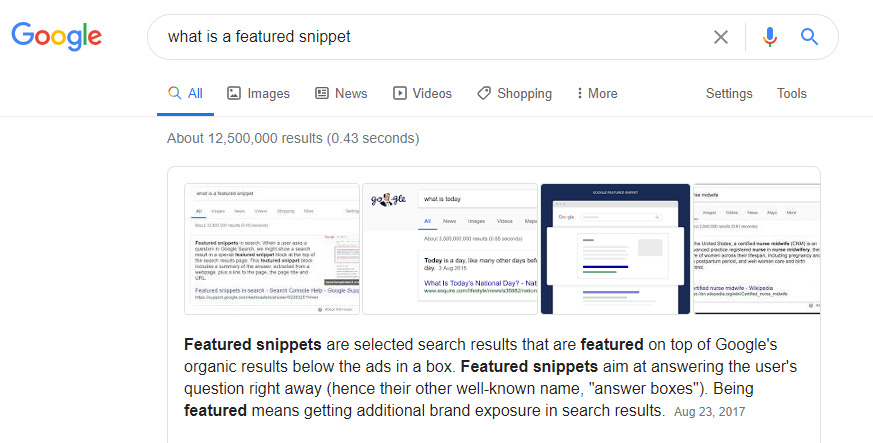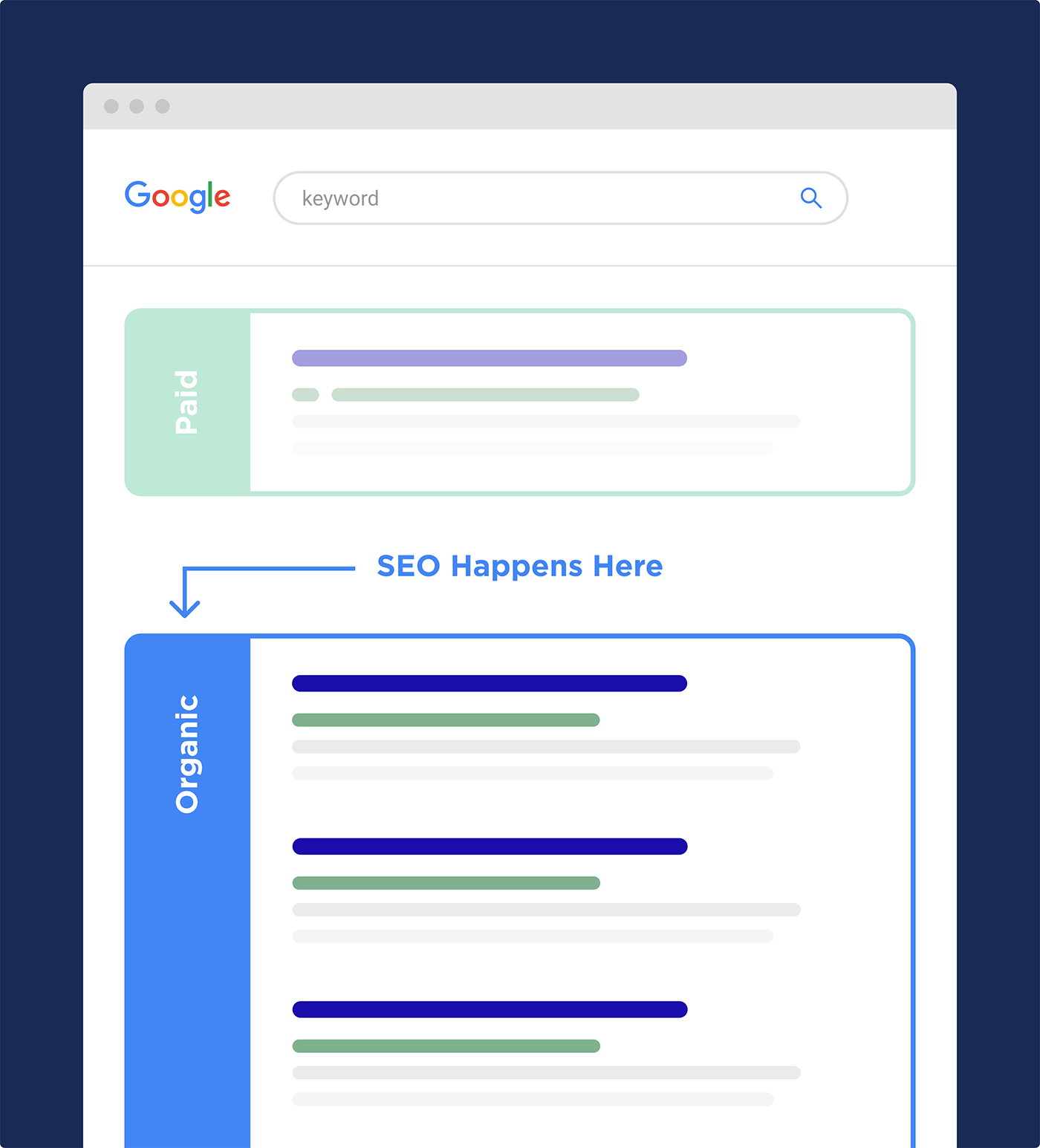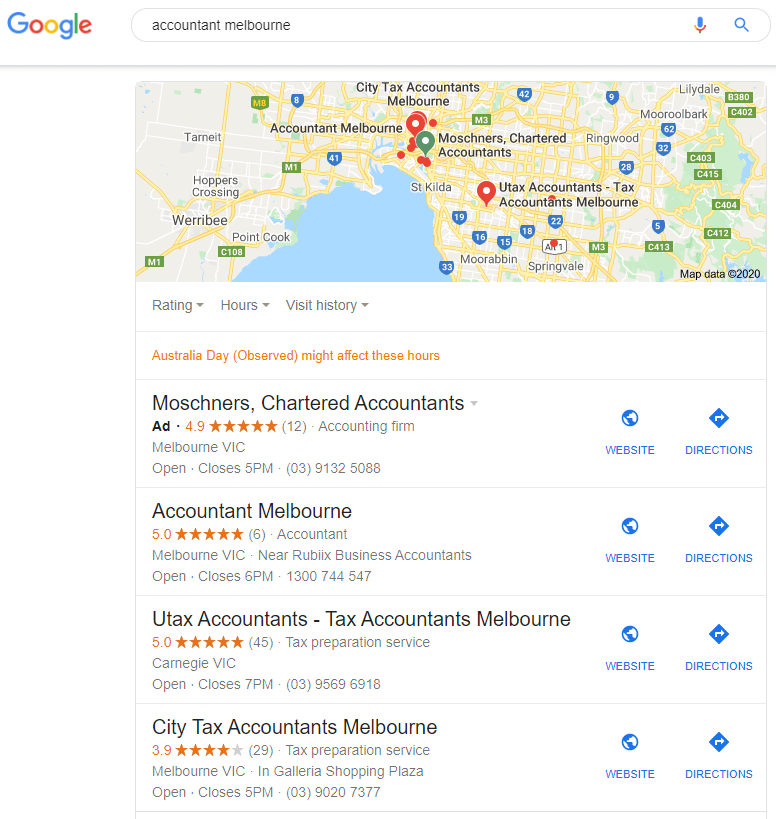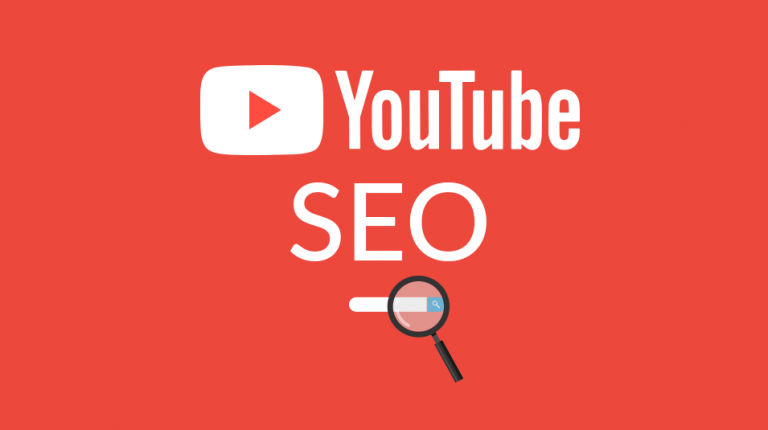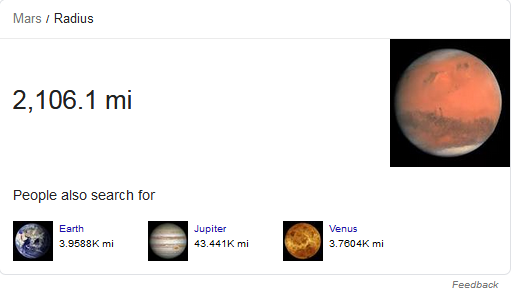What is SEO
SEO stands for Search Engine Optimization, which is the practice of increasing the quantity and quality of traffic to your website through organic search engine results.
It is the process of getting traffic from the “free,” “organic,” “editorial” or “natural” search results on search engines.
All major search engines such as Google and Bing have primary search results, where web pages and other content such as videos, images or local listings are shown and ranked based on what the search engine considers most relevant to users. Payment isn’t involved, as it is with paid search ads - moz.com
SEO & search engines explained
Imagine for a minute that you're a librarian, but not a normal one, you're a librarian for every book in the world.
People depend on you every day to find the exact book they need. How do you do it? You need a system. You need to know what's inside every book and how books relate to each other. Your system needs to take in a lot of information and spit out the best answers for a patron's questions. It's not an easy job.
Search engines like Google and Bing are the librarians of the internet.
Their systems collect information about every page on the web so they can help people find exactly what they're looking for. And every search engine has a secret recipe called an algorithm for turning all that information into useful search results.
Now, if you own a website, search results matter.
When your pages have higher rankings, they help more people find you. The key to higher rankings is making sure your website has the ingredients search engines need for their recipes.
This is called Search Engine Optimization, or SEO.
As it turns out, most of the big ingredients are known. Let's take a look.
Keywords & words on the page matter
Search engines account for every word on the web. This way, when someone searches for shoe repair, the search engines can narrow results to only the pages that are about those words.
SEO titles & headings
Each page on the web has an official title, but you may not ever see it because it's in the code. Search engines pay a lot of attention to page titles because they often summarize the page like a book's title.
Links between websites matter
When one webpage links to another, it's usually a recommendation, telling readers, "This site has good information." A webpage with a lot of links coming to it can look good to search engines. But some people try to fool the search engines by creating or buying bogus links all over the web that point to their own website. Usually, search engines can detect when a site has a lot of them, and they account for it by giving links from trustworthy sites more weight in the recipe.
Keywords that are used in links as anchor text
If your webpage says, "Amazon has lots of books," and the word books is linked, search engines can establish that amazon.com is related to the word books. This way, when someone searches for books, that site will rank well.
Search engines care about reputation & content freshness
Sites with a consistent record of fresh, engaging content and growing numbers of quality links, may be considered rising stars and do well in search rankings.
These are just the basics, and the recipes are refined and changed all the time. Good SEO is about making sure your website has great content that's supported by the ingredients that search engines need for their recipes.
Different types of SEO search verticals
Generally each search query will result in:
- Organic
- Local Search
- Image Search
- Video Search
- Voice Search
The time when you typed in a query into the search bar and Google displayed a list of 10 organic search results. The truth is that time is long gone. Now, when you perform a Google search, the search engine bombards you with a bunch of search results, displayed at different positions of SERP.
Organic Search Results
Organic Search results appear below Google ads and local search results. They are not sponsored results and Google displays web pages in the organic search results that relate to the search query and contain relevant information.
Appearing in the organic search results should be the ultimate goal of every blogger/website owner. To do so, you should add authentic and relevant content to your web pages. The content should also be optimised using the target and LSI keywords.
Google featured snippets
A featured snippet is a dedicated block that usually appears at the top of organic search results for specific search queries. The majority of times these queries are questions starting with what, who, when, why, etc.
Basically, the featured snippet contains a brief summary, either in the form of a paragraph or a list (numeric as well as bulleted), that answers the user query. A featured snippet is displayed along with the page title from where the summary is generated.
Google ads
Google Ads are usually displayed at the top and bottom of the Search Engine Result Page (SERP). Google ads look similar to 
To display your ads, you need to set up a Google Adwords account and bid on keywords that users are searching for. For every time a user clicks on your ad, you’ll have to pay a dedicated amount (CPC) to Google.
It is important to understand that if you have the required budget, you can easily rank your ads at the top of SERP. Google ads are also temporary, which means that the moment you terminate your ad campaign, your ads won’t appear in the search results.
Local Knowledge Graph Panel
The local knowledge graph panel is a type of search results that usually appear for branded keywords. When someone specifically searches for your brand or a related keyword, a box appears in the top-right corner of SERP containing all the relevant brand information including contact details, brand name, website, address, etc.
YouTube Featured Snippet
It is worth noting that Google does not only display web pages in featured snippets but can also pull out results from Youtube videos. It means that if you have a Youtube channel, you can optimise your videos to be displayed in featured snippets. Not only, this will bring a significant amount of organic traffic, but your channel will also become popular.
Local Search - SEO for Google, Bing & Apple Maps
Local Pack, also known as ‘the 3 pack’, is a type of Google search result that appears when a user for local service providers in a specific location. In this scenario, Google will display 3 listings along with a map.
Whenever you click on any of the listings, you’ll be directed to Google Maps with an extended version of the Business page. In case you own a local business, appearing in local search results can help you attract customers and drive more sales.
Local SEO refers to the process of 'optimising' your online presence to attract more business from relevant local searches. These searches take place on Google and other search engines - ahrefs.com
That last point is an important one—this isn’t just about Google. People search for local businesses using various search engines… Google, Bing, Yelp, Apple Maps, etc.
Image Search - SEO for images
Image optimisation is about reducing the file size of your images as much as possible without sacrificing quality so that your page load times remain low. It's also about image SEO. That is, getting your product images and decorative images to rank on Google and other image search engines as cited by Shopify.
Video Search - Video SEO & Youtube
Video SEO is simply optimising your video to be indexed and rank on the search engine results pages for relevant keyword searches. There are many optimisation strategies to give your videos a higher chance of ranking, which this article will outline.
YouTube SEO involves optimising your channel, playlists, meta data, description, and the videos themselves. As mentioned by 3playmadeia.com, you can optimise your videos for search both within and outside of YouTube. A key component to YouTube SEO is harnessing the power of your video's text in the form of transcripts, closed captions, and subtitles.
Voice Search - Voice SEO
As mentioned by whatis, Voice SEO is the optimisation of keywords and keyword phrases for searches using voice assistants. ... Critics argue that voice SEO is irrelevant because voice searches are turned into text-based searches before they're submitted, which makes them no different than desktop or mobile searches.
Rich Google answers
Rich answers, also known as instant answers, are 2-3 words answers displayed by Google to resolve general user queries. For instance, “what is the size of Mars”. In such a scenario, however, Google doesn’t give credit to the website and neither adds a website link.
What are search engines and how they work?
Generally each search query will result in:
- Local Search
- Image Search
- Video Search
- Voice Search
The time when you typed in a query into the search bar and Google displayed a list of 10 organic search results. The truth is that time is long gone. Now, when you perform a Google search, the search engine bombards you with a bunch of search results, displayed at different positions of SERP.
Google featured snippet
A featured snippet is a dedicated block that usually appears at the top of organic search results for specific search queries. The majority of times these queries are questions starting with what, who, when, why, etc.
Basically, the featured snippet contains a brief summary, either in the form of a paragraph or a list (numeric as well as bulleted), that answers the user query. A featured snippet is displayed along with the page title from where the summary is generated.
List of Search Engines beyond Google
Google SERP has completely transformed in the past couple of years. To meet user intent and provide searchers with accurate information, Google has introduced a bunch of search results. As a website owner or SEO professionals, it is your job to focus on these search results and optimise your website accordingly.
Today you can’t expect to drive traffic to your site simply by relying on organic search results. Keep in mind that organic results are only a part of SERP and there are several other search results as well. By optimising your website for these different search results, you can easily optimise your site and secure a position in different search results.
However, performing SEO can get quite challenging, especially if you are new to the SEO world. Connect with leading SEO India company to optimise your website using the right SEO techniques and make your website appear in the most suitable search results.
Bing - Microsoft search engine
Bing.com, based on comScore’s data, the next most powerful player in the search engine industry is Microsoft and its search engine, Bing.
Key differences between the two engines, according to the New York Times, lie in backdrop, search tools, and the amount of information offered on the immediate search page. Bing sports striking, engaging home pages, a display tool when searching for airline flights, aggregate restaurant rating badges, and more. One popular feature is its “linkfromdomain:” search term. This term allows users to see the most frequently used outgoing link from a given site. This can provide easy access to research pages or recommended sites from a trusted source.
Yahoo search engine
Another powerful competitor in the search engine market is the long-enduring Yahoo. For many, Yahoo is much more than a search engine; it’s an online Swiss Army knife.
In addition to its search engine, the Yahoo Web portal offers easy access to its news aggregator, games center, retail options, travel guide, horoscope, and other varied features. Yahoo Finance is a popular aggregate for some of the best financial news available, combining information from CNN Money, The Street, and more.
Yandex - Russian search engine
Founded in Russia in 1997, Yandex has quickly risen to become the country’s premier search engine. Since 2010, it has gone worldwide and become a popular resource for those looking for easy-to-use search pages between different languages. Its translation and cross-lingual search options are featured prominently on its homepage, and it accommodates English, Russian, German, French, and smaller Eastern European languages. This allows bilingual searchers or students working on language projects to more easily find whatever it is they’re looking for.
Ask search engine
The search engine formerly known as “Ask Jeeves” was easily one of Google’s greatest competitors during the early days of the World Wide Web. Though not the hot commodity it once was, it remains popular for its accommodation of natural, colloquial language. After a user poses a question, it provides possible answers and a large list of other pertinent questions.
| Name | Language | Alexa global ranking |
|---|---|---|
| AOL Search | Multilingual | 378 |
| Ask.com | Multilingual | 234 |
| Baidu | Chinese | 6 |
| Bing | Multilingual | 47 |
| Dogpile | English | 10,603 |
| DuckDuckGo | Multilingual | 181 |
| Ecosia* | Multilingual | 700 |
| Exalead | Multilingual | 116,560 |
| Excite* | Multilingual | 40,694 |
| Gigablast | English | 135,070 |
| Multilingual | 1 | |
| HotBot* | English | 298,374 |
| Lycos | Multilingual | 36,396 |
| MetaCrawler | English | 50,489 |
| Mojeek | Multilingual | 148,996 |
| Qwant* | Multilingual | 2,158 |
| Searx*** | Multilingual | 93,323 |
| Sogou | Chinese | 162 |
| Soso | Chinese | 117 |
| Startpage.com | English | 1,946 |
| Swisscows | Multilingual | 232,931 |
| WebCrawler | English | 4,264 |
| Yahoo! | Multilingual | 12 |
| Yandex | Multilingual | 1,060 |
| Yippy | English | 137,607 |
| Youdao | Chinese | 260 |
